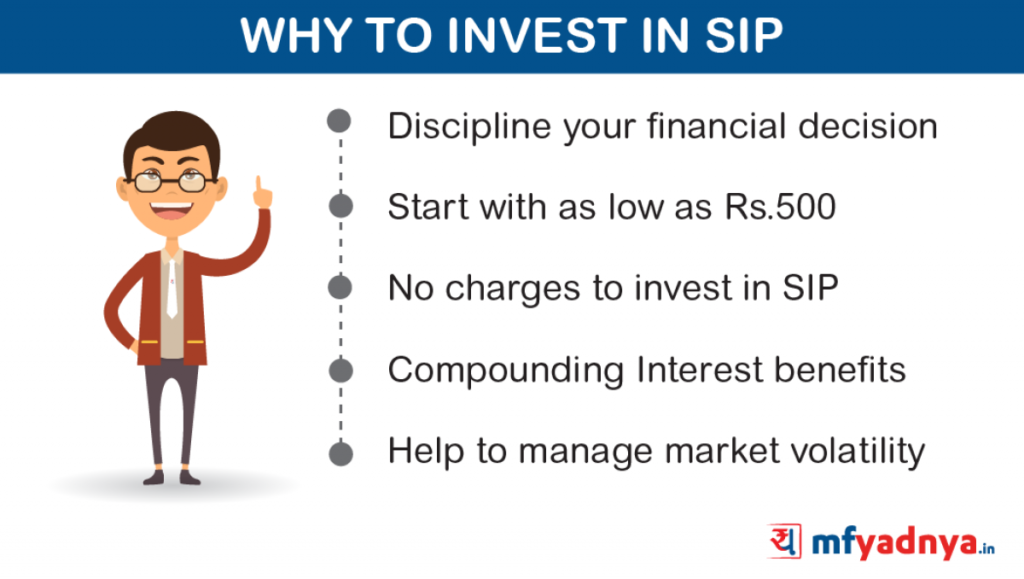
Table of Contents
- Understanding Investment
- Is Investing a Good Practice for Freelancers?
- Investing for Beginners: 5 Reasons Why Freelancers Should Invest
- How to Start Investing Smartly
- Key Takeaways
- Conclusion
- FAQs
When you think of a freelancer, all you imagine is some compulsively creative individual typing away on their keyword in a damp corner of their room. Well, it is partly true. But the work of a freelancer extends well beyond providing services. Managing your hard-earned money is another important aspect of freelance life.

Personal finance isn’t something that is everyone’s cup of tea. Those confusing numbers, bank statements, and regular analysis—all make it look like a dreadful task. But worry not: in this blog, we have simplified the topic of investing for you, and also put together a list of the best investment tips.

Understanding Investment
In the simplest terms, investment refers to any asset you buy that increases in value over time, thus giving you profits for the money spent on it. When you buy something as an investment (a house, mutual funds, stocks, etc.) your main goal is not to consume that good, but rather save it. Overtime, its value will increase, and you will earn passive income through it.
As a freelancer, you mostly don’t have certain privileges as those attached to a full-time job, including a consistent flow of income, job security, employee benefits, and retirement funds. It means, whatever expenses arise in the course of your life, you, alone, are financially responsible for them. In such scenarios, a passive income can be helpful.
When beginners think of investment, they assume it’s limited to stocks. But you can invest in any product, service, or company with the aim to gain long-term profits. Some common investment products are equity, mutual funds, gold, cryptocurrencies, real estate, stocks, etc. We will discuss them all in depth in this investment guide for freelancers.
Is Investing a Good Practice for Freelancers?
Investing is good for anyone, and this includes freelancers too. However, it comes with its own perils, if not done right. That is why many people are averse to the idea of investing. But in such tumultuous economic times, without some smart investments, your money won’t grow. Or worse, it will burn. That’s why it’s crucial to learn how to start investing.
Investing for Beginners: 5 Reasons Why Freelancers Should Invest
Here are top five reasons why it’s crucial to learn how to begin investing.
1. It acts as a safety net
If your salary account is not being credited with a certain amount every month, you will be deprived of a financial safety net. Unlike full-time employees who enjoy perks like a provident fund (PF) or gratuity, freelancers are their own employer. You’re always one bad deal away from experiencing a big dent in your income.
Now, while your income decreases, important expenses almost always remain the same. It is at times like this when you desperately need a safety fund to cushion the financial blow. Short-term investments can provide you with this safety net.
2. It acts as a source of passive income
Investments are a great source of passive income for freelancers. Whether it comes through dividends, day trading, or in the form of property rent, a good investment will make sure you always have an alternate source of income to fall back on. Passive income is undeniably significant, as it helps you sustain your business and maintain the necessary cash flow in your account.
3. It provides assurance against uncertainty
Freelancing is like boarding a train blindfolded. You never know what the next stop is. You might just land a huge gig, or fall seriously ill and lose a few. Good investments are like assurance against the damage done by such uncertain situations. If you have a good investment portfolio to fall back on, you can take bold decisions and scale your business. You won’t always need to worry about your bank balance.
4. It helps in retirement planning
Pension schemes are distant dreams freelancers can’t realize. But that doesn’t mean you can’t plan your retirement (and even early retirement) well. Several investment products like bonds and equity offer good returns.
5. It helps you save for long-term goals
Your regular savings account may just give you a meager interest annually. If you go for bigger commitments like fixed deposits, the interest rates may go up to 6-7%, but even these may not be enough to weather the rising rates of inflation (about 5% in India). However, if you invest in high-growth products like equity, crypto, or mutual funds, you can easily get over 10% of gains annually.
Clearly, investments are the best option if you are trying to pool money for your long-term projects. This may include buying a car, house, children’s education, world travel, and whatnot!
How to Start Investing Smartly
Consider this section an investment guide for absolute beginners. We will begin by explaining how to start investing initially, what to expect, where to invest initially, the best investment tips, and other nitty-gritty related to investing. Here’s a step-by-step guide to investing for freelancers.

1. Learn about investments
No matter what financial gurus will have you believe, there’s no shortcut to investing right. You can hire consultants, follow stock news, or mimic successful investors; but if you never bother to learn even a bit about investing, you will most likely fail. So, make sure you spend enough time understanding the basic principles of investment.
This includes different types of investment products, investment strategies, common terminologies, and how the stock market functions. Almost all knowledge you need on how to start investing is available for free online. But it’s still worth it to spend some time on good courses and instructors. You can check out the following platforms to learn about investing.
2. Create a safety fund
Make sure you are not investing your entire savings. Ideally, you should invest about 10% to 20% of your monthly income to begin with. You must also maintain at least three months’ income as a safety fund. This will help you avoid liquidating your investments in times of need.
3. Start a systematic investment plan
A systematic investment plan (SIP) helps you automate your investment, and also reduces risks significantly. You can start an SIP in different types of mutual funds or wealth baskets. This way, you will be consistently investing small amounts of money out of your earnings every month. Since it’s not a bulk amount, it also won’t leave you empty-pocketed at the end of the month.

4. Diversify your portfolio
It may be tempting to invest in high-risk, high-return products like equity and crypto. But remember, you also need to mitigate the risk of losing all your invested money. As a good strategy, at least 10% of your portfolio must be crypto or other new-age technologies. 50% must be in equity, 30% in mutual funds, and the rest 10% in bonds or gold. The more diversified your portfolio is, the better benefit-to-risk ratio you will have.
5. Keep up with the market
Finally, don’t just leave your investment be. You have to spend enough time monitoring the performance of your portfolio. If some products are not performing well, it may be time to reinvest. Keep an eye on market trends and update yourself with the best investment tips.
Key Takeaways
- Investments provide you with a safety net, a source of passive income, an insurance against the uncertainties of freelance life, retirement planning, and saving for long-term goals.
- The first step to investing for beginners is learning and understanding different investment terminologies and strategies. You can find both free and paid resources for that.
- Before you start investing, maintain a safety fund equal to at least three months of your income. This will help you avoid losing your investment in times of need.
- The best way to invest consistently is starting an SIP. It will help you automate your investment and also decrease risks associated with investing.
- Any good investment guide will advise you to diversify your portfolio. Invest in different kinds of products to decrease risks and get maximum profits.
- Always monitor your investments, update yourself on market trends, and keep learning about how to start investing.
Conclusion
With this, we wrap up this investment guide for freelancers. But you don’t have to stop here. Seek more information about investing and the best investment tips before you begin this journey. It’s an indispensable part of your personal finance management plan. Investment gives you the freedom to take risks, sustain your funds in times of uncertainty, and plan your future without any doubts.
FAQs
You can start by investing in low-risk options like mutual funds, and then expand your portfolio. Based on the amount of money you want to invest, you can choose from stocks, cryptocurrencies, bonds, exchange-traded funds (ETF), gold, etc.
Yes, you can start your investment journey with as little as Rs. 500. You will find many low-priced and value stocks to invest in. You can also explore the option of mutual funds, which work on earning per rupee invested.
Yes, investing is absolutely important for freelancers. It will help you maintain a consistent source of income and develop a safety net. It grows your money over time, which you can use for other purposes.
Mutual funds seem to be the easiest investment products for beginners. They are low-risk, and managed entirely by fund managers.
You should aim to invest at least 10-20% of your monthly earnings in different assets. Based on your earning potential, this amount can be anything. Also, remember to maintain a safety fund worth three months of your income separately.
Mutual funds and gold are one of the safest investments you can try out. Apart from that, stocks of well-established companies and public sector undertakings (PSU) are also considered safe investment options. It depends entirely on your risk-bearing capacity.
Latest Blogs
Explore how Google’s 2025 AI search updates triggered ranking chaos. Learn actionable strategies to adapt your SEO for AI Overviews, zero-click searches, and SERP volatility. Stay ahead now.
Learn how to rank on AI search engines like ChatGPT, Perplexity, and Gemini by optimizing your content for authority, structure, and relevance. Stay ahead in AI-driven search with this strategic guide.
Explore the best healthcare SEO services for your medical practice. Improve online visibility and effectively reach more patients in need of your services.
Get your hands on the latest news!
Similar Posts

Freelancing 101
5 mins read
11 Resources For Designers to Find Freelance Jobs Online

Freelancing 101
6 mins read
30 Freelance Industry Statistics to Get You Started

Freelancing 101
5 mins read